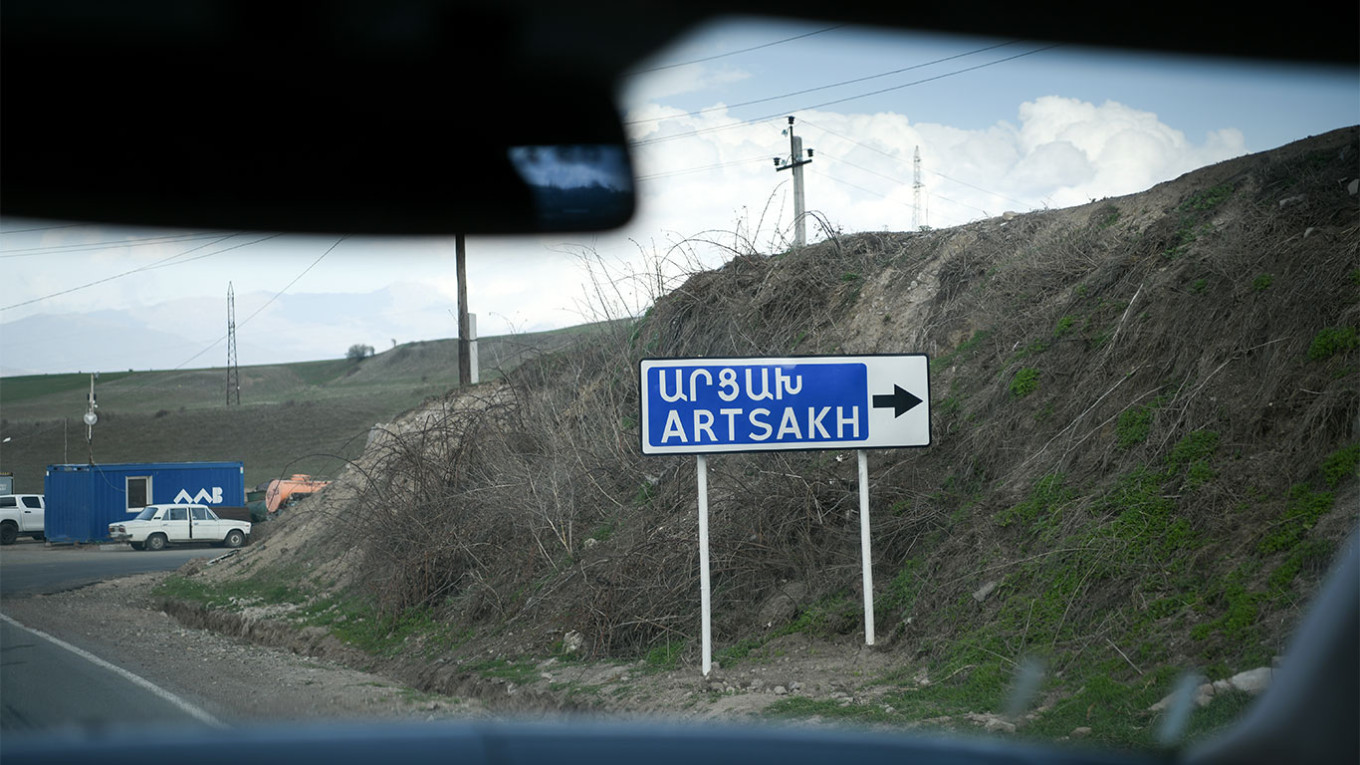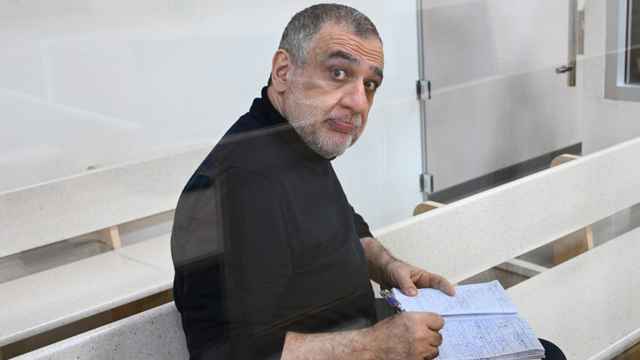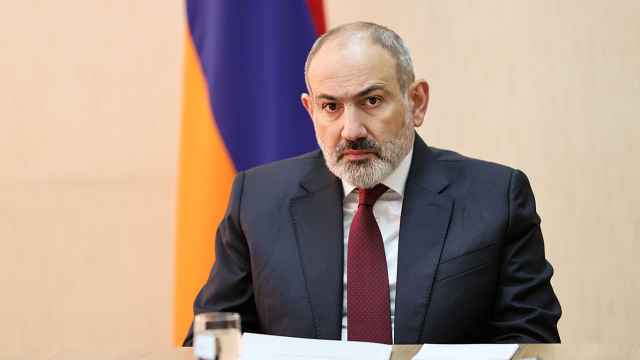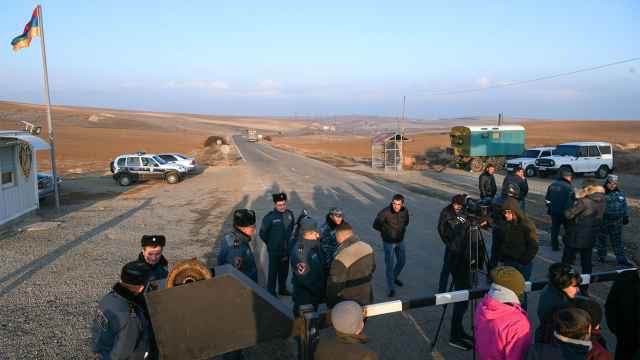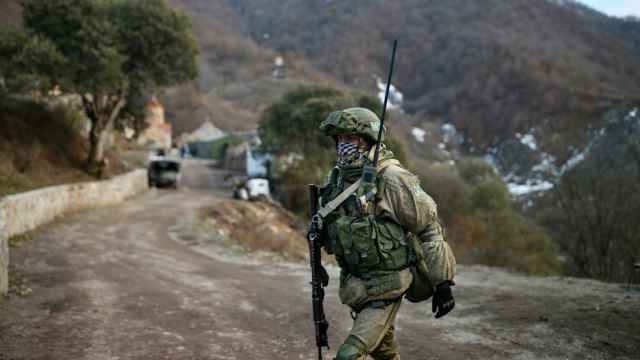Armenia said on Thursday that Russian peacekeepers should have full control of the only land link between its territory and the disputed region of Nagorno-Karabakh.
The comments, from Prime Minister Nikol Pashinyan, came during fresh tensions between arch-enemies Armenia and Azerbaijan.
On Thursday, French Foreign Minister Catherine Colonna held talks in Baku on easing tensions in the South Caucasus. After visiting Azerbaijan, Colonna traveled to Armenia.
Last weekend Baku set up a checkpoint on the Lachin corridor, the only land link between Armenia and Azerbaijan's Armenian-majority region, in violation of Moscow-brokered agreements.
"Russian peacekeepers must keep the Lachin corridor under control and ensure the operation of the corridor," Pashinyan said at a government meeting.
"No one except Russia has the right to control the corridor," he added.
The Armenian leader said that "a wider international presence in Nagorno-Karabakh and the Lachin corridor is becoming more and more necessary every day."
Azerbaijan stressed however that it had every right to set up a checkpoint "at the beginning of the road in Azerbaijan's territory."
It said the move had come in response to safety concerns, accusing Armenia of transporting weapons to Karabakh.
"Azerbaijan remains committed to taking all measures at its disposal to ensure unimpeded movement of persons, vehicles and cargo along the Lachin road," Azerbaijan's Deputy Foreign Minister, Elnur Mammadov, said in a statement sent to AFP on Thursday.
"Peacekeepers have independently confirmed they continue to deliver humanitarian aid in both directions through the road after the checkpoint was established."
Armenia and Azerbaijan have fought two wars over the mountainous enclave of Karabakh that have left tens of thousands dead.
Moscow brokered a ceasefire after the latest bout of fighting in 2020 and posted peacekeepers along the Lachin corridor.
Under the terms of the agreement, Azerbaijan must guarantee safe passage through the corridor. Armenia has repeatedly accused Moscow peacekeepers of failing to protect ethnic Armenians living in the breakaway region.
On Wednesday, Pashinyan discussed the situation with Russian President Vladimir Putin, the Kremlin said in a statement which indicated an "aggravation of the situation."
With Moscow bogged down in Ukraine and unwilling to hurt ties with Azerbaijan's patron Turkey, the United States and European Union have sought to take the lead in peace talks.
A Message from The Moscow Times:
Dear readers,
We are facing unprecedented challenges. Russia's Prosecutor General's Office has designated The Moscow Times as an "undesirable" organization, criminalizing our work and putting our staff at risk of prosecution. This follows our earlier unjust labeling as a "foreign agent."
These actions are direct attempts to silence independent journalism in Russia. The authorities claim our work "discredits the decisions of the Russian leadership." We see things differently: we strive to provide accurate, unbiased reporting on Russia.
We, the journalists of The Moscow Times, refuse to be silenced. But to continue our work, we need your help.
Your support, no matter how small, makes a world of difference. If you can, please support us monthly starting from just $2. It's quick to set up, and every contribution makes a significant impact.
By supporting The Moscow Times, you're defending open, independent journalism in the face of repression. Thank you for standing with us.
Remind me later.


